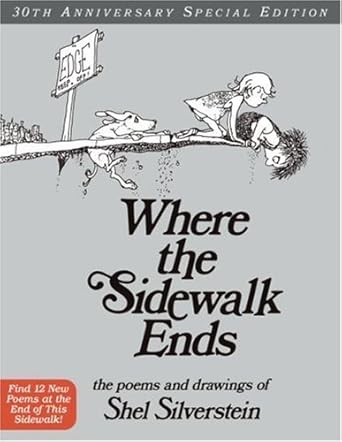THE COVER OF THE ROLLING STONE
Dennis Locorriere of Dr. Hook & The Medicine Show
Dennis Locorriere, a founding member of Dr. Hook & The Medicine Show, a guitarist, songwriter and vocalist, took time recently to answer my seven questions about one of the funnest songs ever to grace the Top Ten, "The Cover of the Rolling Stone." He is currently touring worldwide, fronting "DR HOOK starring Dennis Locorriere."

Dr. Hook (the "& the Medicine Show" was jettisoned in 1975) is one of the most underrated bands of the '70s and early '80s. They're the kind of act that, when you hear one of their songs, you start thinking about their other hits and before you know it you have a longer list than you expected.

Dr. Hook (the "& the Medicine Show" was jettisoned in 1975) is one of the most underrated bands of the '70s and early '80s. They're the kind of act that, when you hear one of their songs, you start thinking about their other hits and before you know it you have a longer list than you expected.
They broke through with 1972's "Sylvia's Mother" (which peaked at #5) before scoring a #6 hit with "The Cover of the Rolling Stone."
It took three years before their next hit, a cover of Sam Cooke's "Only 16," a #6 hit, followed shortly thereafter by "A Little Bit More" at #11.
1978 brought "Sharing the Night Together" (#6); 1979 delivered "When You're in Love with a Beautiful Woman" (#6 - they must have the record for most #6 singles) and "Better Love Next Time" (#12); and in 1980 they scored another #5 in with "Sexy Eyes."
Ten Top 40 hits from 1972-1982 -- six of which reached #5 or #6 -- is an impressive run. Maybe too successful as a pop act, because despite being comprised of very talented singers and musicians who put on highly entertaining live shows, Dr. Hook doesn't get as much credit as some of its peers.
I get it. They had hit singles but their albums never broke through, they sang a lot of what McCartney called "Silly Love Songs," and they always looked like they were having way too much fun to be "artistes."
I get it. They had hit singles but their albums never broke through, they sang a lot of what McCartney called "Silly Love Songs," and they always looked like they were having way too much fun to be "artistes."
That said, I've never met anyone who doesn't like "The Cover of the Rolling Stone," Dr. Hook's only hit that wasn't a love song, one with more of a country rock feel and which showcases the band's innate and solid sense of humor.
TCotRS was written by renaissance man Shel Silverstein, who also wrote Johnny Cash's "A Boy Named Sue," but is probably best remembered today for children's books like "A Light in the Attic" and "Where the Sidewalk Ends."
To find out what Dennis Locorriere has to say about Silverstein, "Rolling Stone," and Dr. Hook, read on...
1 - You sang lead on virtually every Dr. Hook hit record, with the exception of "The Cover of the Rolling Stone." Was it because your voice was, essentially, too good, given the loose feel of this song? Or were you needed to do the harmonies and backing vocals?
Dennis Locorriere: I've always seen The Cover of Rolling Stone as an ensemble piece. It was appropriate. After all, it was the whole band who was begging to be on the cover.
The first voice you hear is mine, saying "Hey, sugar! Tell 'em who we are." Then Ray kicks it off perfectly in the first verse, making the band's case for immortality.
Second verse is sung by George in his low, ominous tones, extolling the virtues of someone named Cocaine Katy.
From there the song is sung pretty much in harmony and ends with me talking again. "I can see it now, man...awwww, beautiful!"
2 - How did you come up with the hilarious guitar solo (I've read that you played it on the record, though not in concert)?
DL: I literally closed my eyes and dove in, not considering the notes I was playing at all. What came out was what we used. I couldn't have played it again if I'd wanted to. I felt sorry for the poor guitar players out there who may have tried to duplicate it!
3 - Shel Silverstein called the band at a hotel and asked if you wanted to get on the cover of Rolling Stone. When you first heard him play the song, did you think his plan would work?
DL: You never know what's gonna 'work' in this business. What we did know was that it was a brilliantly funny, cleverly written song and we wanted it in our repertoire.
4 - Why didn't Shel record the song himself?
DL: Shel always said he didn't need or want the attention and passed a lot of songs, TV appearances and the like on to us. The band had just gotten some attention with our first big record, Sylvia's Mother (also written by Shel!) and I suppose he thought this song could only help. He was right!
5 - You and the rest of the band look like you're having a great time on every live performance of CotRS I've seen. Was your humorous patter leading into the live versions off the cuff, or did you have a couple of standard lines you liked to work with, given how many times you must have performed that song?
DL: The things I said on the record were off the cuff. I just rambled until we found something we thought might work. Didn't take all that long as I recall.
In concert, we just played the song without any commentary. The lyrics spoke for themselves.
6 - The image of Dr. Hook and the Medicine Show in CotRS, on the first few albums and on stage was, "this band knows how to party!" However, you look and sound great now, tour the world performing with your band, and seem younger than your years. Good genes, or was that image more an act than a reality?
DL: When you first go on the road you think you should have a party every night because you're sure the good times can't possibly last very long. Once it becomes evident that this is your job, and not a hobby, you have some choices to make. I was never one to seriously over indulge, believe it or not. We had a shambolic stage persona that worked for us for awhile, but, truthfully, we weren't 'always stoned' any more than Bowie was really 'from Mars.'
As far as seeming younger than my years these days, I thank you for the compliment. I feel terrific. Guess we'll see how long that goes on.
7 - When the song was released, Rolling Stone sent 16-year old Cameron Crowe to profile the band. When you watched his film, "Almost Famous," which is based on Crowe's experiences back then, did that bring back any memories?
DL: Tho I haven't seen him since those very early days I have fond memories of Cameron. He was a sharp kid and you were left with the feeling he was gonna go on to bigger things.
The last time I had contact with him was by post, after Almost Famous was released. He told me he had tried to reach me and wanted me to be a consultant on the film. I was sad we hadn't connected because the film is great - very accurate as far as the behind the scenes stuff goes. I also would have loved to work with Cameron, the man. But I was still very flattered that he'd even considered me after so many years.
Judging by his tweets, Dennis is one of the hardest working men in show business, touring with his band and making the media rounds. I'll leave you with this entertaining interview Dennis did a couple of years ago on Australian TV:
